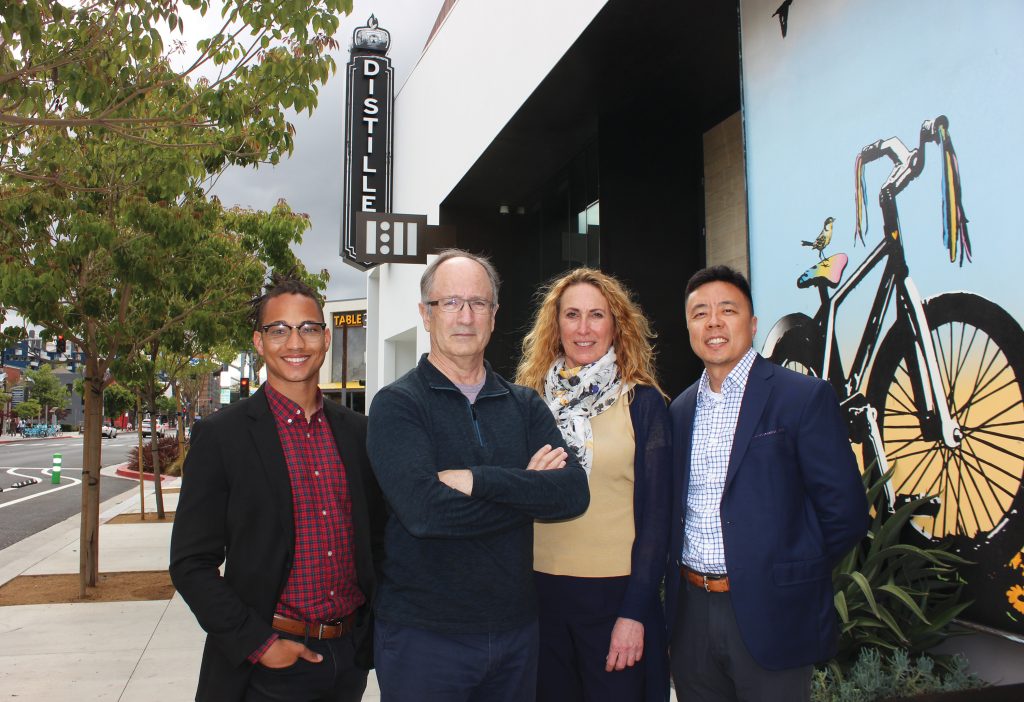Now in its third year, the Entrepreneur and Small Business Education Series teaches budding entrepreneurs how to plan and obtain funding for their businesses. Offered in partnership with California State University, Long Beach (CSULB), and the Downtown Long Beach Alliance (DLBA), a nonprofit organization focused on economic and community development in the downtown area, the workshop is a six-week course that runs from April 20 to May 25.
While the DLBA offers standalone classes on marketing and business assistance throughout the year, the education series is an in-depth program that builds on each of its lessons to help participants craft a complete business plan, DLBA Research and Policy Manager Austin Metoyer said. Courses are taught by CSULB faculty members and get into the nuts and bolts of business strategy as well as where to find seed money and microloans. In the sixth week, graduates pitch their plans for a chance to earn grant money or other awards, such as additional office space, Metoyer explained.

The workshop’s third class, Financial Aspects of Your Business, features a presentation by Daniel Han, an executive fellow at FUSE, a national nonprofit that works with local governments on issues such as workforce development and education. Han was contracted by the City of Long Beach to identify ways to increase access to capital for new businesses, particularly for minority owners. “If banks are not yet reachable, it’s actually not that easy to navigate alternative lending sources,” Han explained. “Small businesses seem to still have . . . a hard time deciphering between bank vs. non-bank lenders, and an even harder time deciphering between predatory and non-predatory lenders.”
Part of Han’s presentation includes a toolkit for identifying what he calls “RAILS,” or Responsible Affordable Inclusive Lenders. “These are responsible lenders who are not going to just drop a loan and say, ‘see you later.’ They are affordable lenders, meaning they have lower rates than predatory lenders . . . and they’re inclusive, because they embrace the diversity of the communities here in Long Beach.”
One of the biggest mistakes entrepreneurs make is a failure to appreciate just how complicated their market is, according to Dr. Wade Martin, professor of economics and director of the Institute for Innovation and Entrepreneurship at CSULB. “It’s really a challenge to realize just what it does take to start a business,” he said. “You think, ‘Okay, I can raise x-thousand dollars to start my business,’ but it’s probably going to take twice that. You underestimate the hurdles you’ll eventually face.”
Teaching new and would-be business owners how to avoid those challenges is part of the workshop’s curriculum. Martin noted that the institute continues to work with a number of business owners who have graduated from the course. “We see this as the first step, not the last step. It’s not something where they go through the workshop and then we never see them again,” he said. “It’s important that they have this continual mentoring and opportunity to work with us to develop their ideas further.”
Seyed Jalali, an economic development officer at the City of Long Beach, said the education series prepares local entrepreneurs to reach the next step of their business journey, such as finding a location or securing a loan. For example, the workshop directs new candidates to the city’s various financing options. Startups are able to leverage Kiva, a zero-interest microloan, to raise up to $10,000, while the Grow Long Beach Fund is for more mature businesses seeking loans in the $100,000 to $2 million range.
Small, local businesses are essential to a city’s health, Martin said. Having such businesses ensures that Long Beach is not beholden to the boom-and-bust cycles of large industries. Many large companies inspire a race to the bottom seeking out locations that can offer the most tax relief, Martin noted, whereas smaller, homegrown businesses offer stable employment. “Think about what there is to offer for citizens and the community if people can find jobs closer to home,” he said. “They will live and shop in Long Beach.”
For more information on the Entrepreneur and Small Business Education Series, visit the DLBA’s website at https://downtownlongbeach.org/invest/entrepreneurship-and-investor-resources/entrepreneur-and-small-business-education-series/.
